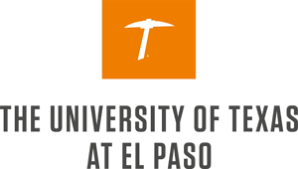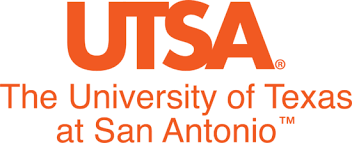Introduction
Texas, known for its vibrant tech industry and economic growth, offers a range of opportunities for students pursuing degrees in software engineering. From bachelor’s to master’s programs, the state provides diverse educational paths that cater to different career goals. This blog post explores the state of software engineering degrees in Texas, comparing bachelor’s and master’s outcomes, admission requirements, the significance of ABET accreditation, and the unique aspects of studying and working in Texas.
- Bachelor’s Degree in Software Engineering: A Bachelor of Science (B.S.) in Software Engineering provides foundational knowledge and practical skills necessary for entry-level positions in the tech industry. Students learn programming, software development methodologies, project management, and system analysis. They gain experience through coursework, internships, and sometimes co-op programs. Graduates are well-prepared for roles such as software developers, quality assurance testers, and systems analysts.
- Master’s Degree in Software Engineering: A Master of Science (M.S.) in Software Engineering is designed for those seeking to advance their careers or specialize in specific areas. It builds on undergraduate knowledge and delves deeper into topics such as advanced software design, software architecture, and project management. Students may choose between thesis and non-thesis tracks, focusing on research or practical projects. Graduates often move into leadership roles, such as software engineering managers, project leads, or specialized technical roles.
Life as a student in Texas is dynamic and enriched by the state’s diverse culture and vibrant cities. Major tech hubs like Austin, Dallas, and Houston offer numerous opportunities for internships and employment in the tech industry. Texas universities often have strong ties to the tech community, providing students with access to industry events, networking opportunities, and career fairs. The state’s cultural diversity and outdoor recreational options, such as hiking and urban parks, further enhance the student experience.
Software Engineering Degree Programs in Texas
With a degree in software engineering from a Texas institution, graduates can pursue a variety of careers. Common roles include software developer, quality assurance engineer, systems analyst, and project manager. Unique job opportunities in Texas include positions with tech startups in Austin, specialized roles in the state’s prominent energy sector, and positions in defense and aerospace industries, which are particularly prominent in Texas. Overall, Texas offers a robust educational landscape and a thriving job market for software engineering students.
Bachelor’s Degree Programs
University of Texas – Arlington
- Arlington, TX
Credit Hours: 124
Resident Tuition: $9,234 (PYR)
Non-Resident Tuition: $23,726 (PYR)
Program Overview:
The B.S. in Software Engineering program provides students with fundamental knowledge and practical skills in designing, implementing, testing, and maintaining software systems. Students learn to identify software requirements and design systems to meet those needs within realistic constraints, applicable across various domains like video games, financial software, communication apps, and scientific computing.
University of Texas – Dallas
- Dallas, TX
Credit Hours: 123
Resident Tuition: $11,698 (PYR)
Non-Resident Tuition: $41,070 (PYR)
Program Overview:
The software engineering program, part of the University’s Department of Computer Science, shares a strong mathematical foundation with the computer science program, covering calculus, linear algebra, and discrete mathematics. Both programs include core courses in modern programming methodologies, algorithms, data structures, and operating systems. However, software engineering focuses more on engineering principles, software validation, testing, and architecture.
University of Texas – El Paso
- El Paso, TX
Credit Hours: 120
Resident Tuition: $2,343 (PCL)
Non-Resident Tuition: $8,286 (PCL)
Program Overview:
The B.S. in Computer Science offers a strong foundation in programming, problem-solving, and theoretical computer science, with practical experience in applying solutions to real-world problems. Students can specialize in Secure Cyber Systems, Software Engineering, or Data Analytics through upper-division electives. Graduates gain marketable skills, including effective teamwork, communication, and the ability to design, implement, and evaluate computing solutions.
University of Texas – San Antonio
- San Antonio, TX
Credit Hours: 120
Resident Tuition: $10,580 (PYR)
Non-Resident Tuition: $26,798 (PYR)
Program Overview:
UTSA’s Bachelor’s Degree in Computer Engineering provides broad engineering skills by combining math, computer science, and electrical engineering. Students learn about logic design, digital systems, and microprocessor assembly programming, preparing them to design and test hardware such as routers, microprocessors, and motherboards.
Sam Houston State University
- Huntsville, TX
Credit Hours: 120
Resident Tuition: $6,550 (PYR)
Non-Resident Tuition: $19,650 (PYR)
Program Overview:
The Bachelor of Science in Software Engineering equips students with the skills needed for careers in software development, focusing on systems or applications. Systems software developers create and maintain operating systems for computers and devices, while application developers design software programs like databases and games.
Baylor University
- Waco, TX
Credit Hours: 126
Tuition: $54,844 (TTL)
Program Overview:
The Software Engineering Concentration focuses on producing and maintaining high-quality software through systematic and efficient methods. It blends computer science with engineering topics like quality assurance, project planning, and economic tradeoffs. The concentration includes advanced courses in software quality assurance, project management, and engineering economics.
Abilene Christian University
- Abilene, TX
Credit Hours: 128
Tuition: $59,440 (PYR)
Program Overview:
Software developers and other computer scientists are tackling exciting problems in a world with a growing amount of data. If you enjoy problem solving and logic, earning a degree in computer science will challenge and equip you for a successful career in this competitive field.
St. Mary’s University
- San Antonio, TX
Credit Hours: 133
Tuition: $33,890 (PYR)
Program Overview:
The Software Engineering program at St. Mary’s University combines classroom learning with hands-on experience, preparing students to create reliable, efficient, and maintainable software systems. Students can pursue a 133-credit-hour Bachelor of Science in Software Engineering or opt for a 5-year combined bachelor’s and master’s degree.
Master’s Degree Programs
Texas State University
- San Marcos, TX
- Online + Campus
Credit Hours: 36
Modality: Online/On-Campus
GRE: Required
Resident Tuition: $9,000 (PYR)
Non-Resident Tuition: $14,970 (PYR)
Program Overview:
Software engineering is the application of scientific knowledge to the development and maintenance of software systems. The Software Engineering concentration covers the methods of software synthesis and analysis and exposes students to rigorous software processes, automated process enactment, program analysis algorithms, in particular model checking, verification by proof, symbolic evaluation, runtime verification and test generation techniques.
St. Mary’s University
- San Antonio, TX
- Campus
Credit Hours: 30
Modality: On-Campus
GRE: Not required
Tuition: $1,132 (PCH)
Program Overview:
The online Master of Science in Software Engineering prepares students to design, develop, and maintain large-scale software systems with a focus on quality, reliability, and maintainability. The program emphasizes organizational structures, development processes, design methodologies, and quality controls. It offers a flexible 30-credit-hour curriculum, allowing students to choose between a thesis or non-thesis option.
Texas Tech University
- Lubbock, TX
- Online + Campus
Credit Hours: 37
Modality: Online/On-Campus
GRE: Not required
Resident Tuition: $9,804 (PYR)
Non-Resident Tuition: $17,512 (PYR)
Program Overview:
The Master of Science in Software and Security Engineering (MSSSE) program focuses on advanced concepts in security and software engineering, covering areas such as information security, software design, and quality assurance. It prepares students for careers as software or security engineers and offers opportunities for research in the field.
University of Houston – Clear Lake
- Clear Lake, TX
- Online + Campus
Credit Hours: 33
Modality: Online/On-Campus
GRE: Not required
Tuition: $19,082 (PYR)
Program Overview:
The Master of Science in Software Engineering from the University of Houston-Clear Lake prepares students for leadership roles in the software industry. With a focus on the foundations, methodologies, and tools used in software systems management and design, the program balances theory and practice.
University of Texas – Arlington
- Arlington, TX
- Online + Campus
Credit Hours: 36
Modality: Online/On-Campus
GRE: Not required
Resident Tuition: $6,256 (PYR)
Non-Resident Tuition: $16,056 (PYR)
Program Overview:
The Master of Software Engineering program is designed to advance students’ professional and scholarly skills, focusing on areas like software system design, development lifecycles, and both web and mobile applications. The curriculum covers key aspects such as system testing, quality assurance, programming languages (C/C++/C#, Java), cloud computing, and software project management, including agile and waterfall methodologies. Graduates gain expertise in design patterns, software metrics, and cost estimation, preparing them for advanced roles in the field.
Baylor University
- Waco, TX
- Online
Credit Hours: 33
Modality: Online
GRE: Not required
Tuition: $50,270 (PYR)
Program Overview:
Baylor University’s Online Master of Computer Science – Software Engineering program offers a flexible, self-paced curriculum with small class sizes and personalized 1:1 student support. The program is designed to help you become an innovative tech leader by providing hands-on projects and direct interaction with professors.
ABET-accredited Engineering Programs
ABET (Accreditation Board for Engineering and Technology) is a recognized accrediting body that ensures academic programs meet high-quality standards in engineering and technology. For software engineering programs, ABET accreditation signifies that the program adheres to rigorous criteria, including curriculum quality, faculty qualifications, and student outcomes. There are two ABET-accredited bachelor’s programs, shown above: The University of Texas at Arlington and the University of Texas at Dallas.
Accelerated Engineering Programs in Texas
Several Texas institutions offer combined bachelor’s/master’s programs, allowing students to complete both degrees in an accelerated time frame. For example, the University of Texas at Austin offers a combined B.S./M.S. program in Computer Science, enabling a seamless transition from undergraduate to graduate coursework.
Similarly, the University of Houston features a 4+1 program in Software Engineering, where students can complete both degrees in five years. These programs streamline the educational process by integrating graduate-level courses into the undergraduate curriculum and often facilitate admission to the master’s program based on performance during undergraduate studies.
Affordable Engineering Programs in Texas
Tuition affordability is a significant consideration for students pursuing degrees in software engineering in Texas, where the costs can vary based on the institution and program. For instance, the University of Texas at Arlington offers a Bachelor of Science in Computer Science with a focus on software engineering. The in-state tuition for this program is approximately $9,000 per year, while out-of-state students face a higher rate of around $24,000 annually.
At the graduate level, the University of Houston – Clear Lake provides a Master of Science in Software Engineering, which is more affordable in comparison to some other programs. For both in-state and out-of-state students, the tuition is approximately $19,000 per year, while out-of-state students pay about $27,000 annually. This makes the University of Houston – Clear Lake an attractive option for students seeking a quality education at a relatively lower cost.
What Types of Careers Can I Pursue With a Degree in Software Engineering in Texas?
With a degree in software engineering, especially in Texas, you can pursue a range of exciting and diverse careers, some of which are particularly unique to the state due to its booming tech industry and distinctive economic landscape. Here are some examples:
- Software Engineer at Texas Instruments: Texas Instruments, headquartered in Dallas, is a major player in the semiconductor and electronics industry. Software engineers at Texas Instruments work on developing software that drives a wide range of electronic devices, from industrial machinery to consumer electronics. This role involves designing, coding, and testing software for embedded systems and integrating new technologies into TI’s hardware products.
- Game Developer at Gearbox Software: Based in Frisco, Gearbox Software is renowned for its contributions to the gaming industry. A software engineer in this role would work on creating, optimizing, and maintaining code for popular video games. This includes working on game mechanics, graphics, and networking aspects, which requires a blend of software engineering skills and creativity.
- Cybersecurity Analyst for the Texas Department of Information Resources: Given the increasing focus on cybersecurity, this role involves protecting state-level IT infrastructure from cyber threats. A software engineer in this position would develop and implement security protocols, analyze potential vulnerabilities, and respond to incidents to safeguard sensitive government data and systems.
- Data Scientist at Dell Technologies: Located in Round Rock, Dell Technologies is a leading provider of IT solutions. Data scientists at Dell work on analyzing large datasets to provide insights and solutions for optimizing business operations, developing new products, and enhancing customer experiences. This role often requires advanced software development skills to handle big data and machine learning tasks.
Having a Master’s degree in software engineering can significantly impact career prospects and job responsibilities. A Master’s degree often opens doors to more advanced and specialized roles, such as:
- Lead Software Engineer or Technical Lead: With a Master’s degree, you may be considered for leadership positions that involve overseeing a team of developers, managing complex projects, and making high-level architectural decisions.
- Research and Development (R&D) Specialist: Advanced degrees are often required for roles focused on innovation and research within tech companies or academic institutions, where you might work on cutting-edge technologies and contribute to significant advancements in the field.
- Senior Cybersecurity Consultant: A Master’s degree can provide the expertise needed for senior roles in cybersecurity, offering strategic guidance and solutions to complex security challenges.
- Product Manager: In tech companies, a Master’s degree can help transition into product management roles, where you would be responsible for guiding the development and marketing of software products, leveraging both technical and business skills.
Overall, a Master’s degree enhances your qualifications, making you more competitive for senior and specialized positions and potentially leading to higher salaries and greater career advancement opportunities.











